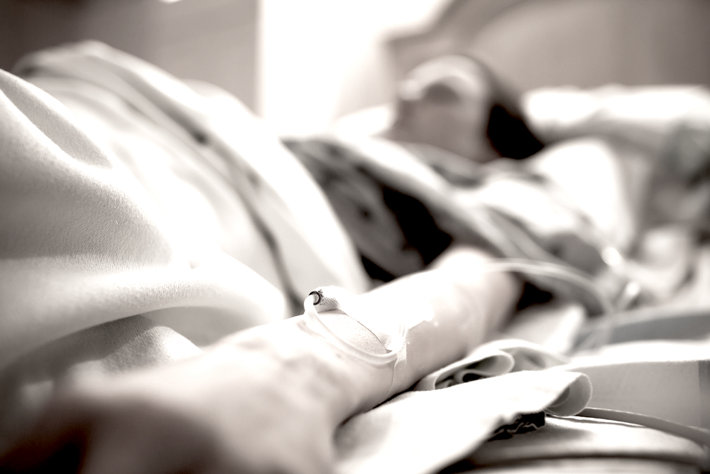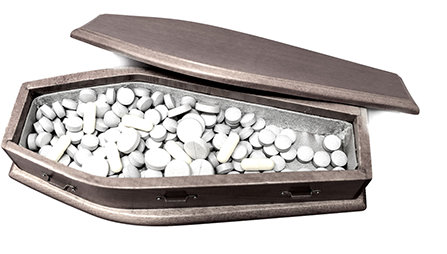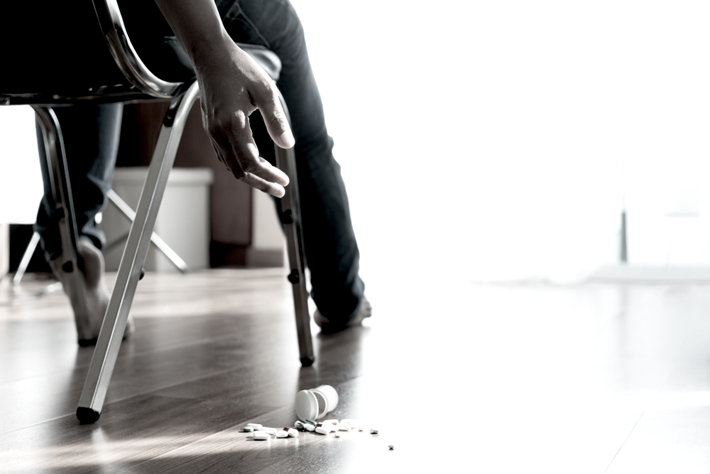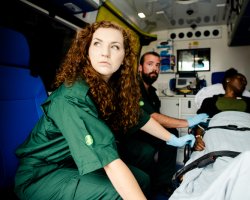How Hospitals Might Prevent Patients from Becoming Addicts

Let’s take a moment, let’s gird our loins, and let’s talk about something that many of us probably don’t even want to think about, much less discuss. Let’s take a few minutes and let’s talk about the addiction epidemic that has swept across the nation, a crippling and nerve-wracking epidemic of crisis, heartbreak, medical difficulty, mental strife, national turmoil, and death. Let’s brainstorm how health organizations, hospitals, and primary care offices and clinics can help in preventing more people from becoming addicted to drugs.
Not All Meds are Good Meds

The condition of the addiction epidemic as it stands today is affected greatly by the use and abuse of prescription drugs. Because prescription drugs are so heavily used, we now live in a country where tens of millions of Americans are taking these drugs. And millions are becoming addicted to them.
Most people understand, by now, that the United States is in the midst of a crippling, life-threatening drug and alcohol addiction epidemic. Drug and alcohol addiction are some of the top concerns in our health sector right now, right up there with cancer, diabetes, obesity, cigarette smoking, mental strife and conflict, and communicable diseases. Drug and alcohol addiction has always been a problem for us, but it likely has never been this bad.
But even with how prominent the drug addiction crisis has gotten, there is still something else very unique and peculiar about the “addiction scene” that we have today. Something that, problem or no problem, we did not have thirty years ago. Though addiction has always been around, one of the new variables that we must now contend with is the fact that our country struggles with prescription drug addiction more so than anything else. This is a big problem that we are faced with, and this is the new variable that has been the catalyst to the 21st-century addiction epidemic.
Prescription drugs are made to help us. They are medical solutions in their own right, and there are hundreds of different kinds of prescription drugs for thousands of different types of maladies and struggles. It almost seems as though we have a pill for everything nowadays.
And we can’t exactly fault the fact that our medical industry has worked so tirelessly to improve our health. However, the industry has gone a little overboard with prescription drugs. Many prescription drugs are absolutely beneficial and helpful to us, but not all of them are.
Can Patients Become Addicted to Their Meds?

Our problem with prescription drugs is not only one of the young adults and other individuals who “get ahold of pills.” This problem is actually much bigger than that.
The brutal truth is, American patients are becoming addicted to their medications, even if they take them exactly as prescribed. According to the National Institute on Drug Abuse, a top organization and an authority on the drug scene, no less than 2.4 million Americans meet the criteria for physical and mental dependence on prescription drugs. According to NIDA, the only drug that has more Americans using it than prescription drugs is marijuana.
NIDA suggests we restructure our patient-doctor relationships to include less prescribing, more education, more preventative care, fewer invasive procedures, more holistic options, etc.
Clearly, there is a significant degree of risk involved when patients take opioid pain relievers or psychoactive medications, and we need to do something about that.
How Hospitals can Help Prevent More People from Becoming Addicted to Pharmaceutical Drugs
Why are we putting medicines in our body that might end up causing more harm than they cause benefit? Why are we putting so much blind faith in prescription bottles?
We need to start pushing for medical solutions that do not involve medicines which have a risk of being more harmful than the medical conditions that those medicines are supposed to treat.
And here is where hospitals can come in.
Hospitals see patients at their worst. Physical pain. Accidents. Injuries. Major illnesses. Mental strife. Loss. Often times, hospital doctors and medical staff will feel the need to prescribe drugs. And we can’t really blame them for wanting to do that. They see patients at their patients’ worst moments in life, be it physical pain, mental strife, or any combination of the two.
But prescribing painkillers or psychotropic drugs often create bigger problems than it solves. We need our hospitals to start monitoring and reducing their prescribing trends, all so that patients do not leave hospitals with prescriptions for drugs that could set them on the path of addiction.
Many hospitals will want to contest this because they feel as though they simply can’t just “prescribe drugs less.” And that is totally understandable too. However, hospitals need to start exploring other avenues of providing help and relief to their patients.
Hospitals need to start utilizing solutions like holistic medicine, alternative approaches to pain relief, non-drug-related therapies for mental strife, etc. We need medical solutions for physical and mental pain that are not addictive and potentially devastating, and doctors and hospitals are going to be the first line of defense for giving us those solutions.
Hospitals need to support and contribute to research that explores the already quite apparent help that we can get from all-natural and non-addictive pain relievers. Hospitals also need to make an investment in therapy, in counseling, in life-skills building, in evidence-based and truly helpful non-drug-based approaches to mental strife and personal dilemmas or provide referrals to facilities where these needs can be met without the use of drugs. There are solutions and remedies for addressing the physical and mental pain that do not involve addictive pharmaceuticals. We just need our medical industry to get behind these approaches. And we need our hospitals to lead the way in this.
Creating a Society That is Free from Addiction

In a nation that has one of the best health programs in the world, it is more than a little bit disappointing to hear that the same health industry that has done so much good by us is also the same health industry that has helped to create the prescription drug addiction epidemic that we are now faced with. Prescription drug addiction is the modern-day harbinger of doom for millions of addicts, and there is something very wrong with that picture.
Pharmaceutical organizations and the entire medical industry for that matter needs a change because we need a society that is free from addiction. It is one thing for our country to struggle with addiction problems thanks to illegal painkillers. But it is quite another for our nation to struggle with rampant addiction problems from the very medicines that are supposed to help us.
Sources:


 ®
®